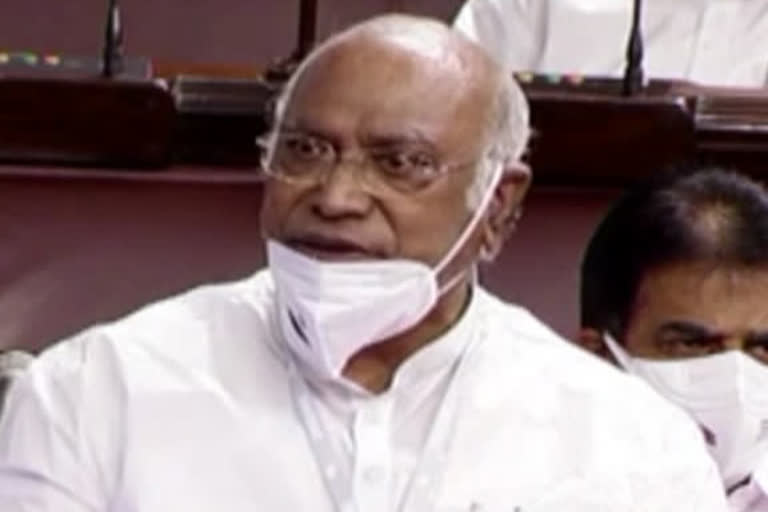New Delhi: The opposition parties are all set to corner the government in the upcoming winter session of the Parliament on issues of inflation, Chinese incursion, Pegasus spyware and farm laws. The session begins on November 29.
The leader of opposition in the Rajya Sabha, Mallikarjun Kharge has made it clear that the party will raise the issue of inflation. "It has been 7 months since inflation is in double digits. The Government has failed to bring the prices of essential commodities down making the struggle of the common man even worse during the pandemic," Kharge said.
Armed with success on the repeal of farm laws, the opposition will also try to corner the government on the passage of the bills in the house. It has been alleged that the government is bulldozing the procedure. "Government must realise that enacting important laws in a hurry bypassing parliamentary scrutiny and excluding stakeholders from consultations, results in confrontation and conflict. It must give up the undemocratic practice and refer all important bills to parliamentary standing or select committees for building consensus," said Anand Sharma after the government announced the repeal of farm laws.
The Congress is also going to raise the issue of Chinese incursion and Pegasus spyware in the house.
Also Read: Kharge questions govt's silence over Chinese incursion in Uttarakhand
Former Congress President Rahul Gandhi had said that the party will raise the Pegasus snooping issue in Parliament and will ask who "authorised" Pegasus to spy. The Supreme Court has already set up a committee to be supervised by a retired top court judge Justice R.V. Raveendran, who will be assisted by Alok Joshi, former IPS officer and Dr Sundeep Oberoi. The Centre had argued that disclosing the details on the use of Pegasus spyware involves national security issues, as it refused to divulge any details.
Rahul Gandhi has also said that the party will also raise the issue of inflation and said that in GDP (Gas, Diesel and Petrol), the government is earning huge amount of money and it's a direct attack on the consumer as it affects directly and indirectly as it also increases inflation.
IANS



